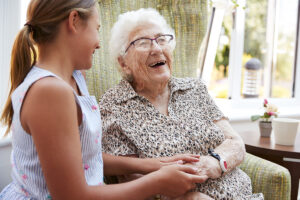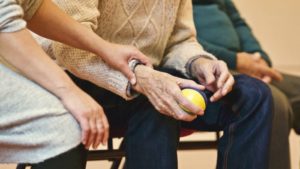A Short Guide to Caring for Elderly Parents

No-one escapes the effect of aging. As we age our protein synthesis declines, producing less of the vital compound collagen. This reduction affects skin and bone health, and we’re at higher risk of developing skeletal diseases, such as osteoarthritis. Skin loosens, liver spots begin to show, and energy levels fall.
Aging affects our mental health as well. A drop in cognitive activity combined with lower protein synthesis may increase the risk of developing conditions such as Alzheimer’s disease and dementia.
Everyone wants his or her parents to age gracefully. The transition from maturity to the senior stage of life deserves to be a pleasure, rather than a pain. When our folks reach their senior years, its time to reverse the trend in the parent and child relationship. In their later stage of life, your parents will rely on you for assistance with their care and well-being.
Here’s a short guide to caring for your Elderly parents in their senior years.
Daily Lifestyle Activities
As your Elder parent’s age, they may lack the energy and strength to carry out their daily duties efficiently. Activities such as cooking, cleaning their home, running errands, shopping, and telecommunications become challenging.
The majority of these activities can receive support from a caregiver or yourself. Visiting your folks once a week to take them grocery shopping provides them with an incentive to remain excited and cheerful during the week. Helping them unload the grocery cart into the trunk of their car, and filling up the shelves in their pantry, is a great way to spend some quality time with your folks.
You can buy them hearing aids to help with telecommunications and a cell phone with large keys to help them type. A housekeeper can prepare their meals and take care of maintenance responsibilities around the house.
Related : Cheer up your Grandparents with a Gift!
Daily Functional Activities
These activities include self-feeding and hygiene, as well as dressing, bathing, and exercise. These types of functional activities require regular care, and unless you live with your parents, you’re not going to be around to assist them.
Even if your folks stay with you, work and your family take up the majority of your time, and caring for your folk’s functionality is too much responsibility to bear on top of a busy lifestyle.
In such a case, it’s best to hire an assisted caregiver to monitor the health of your folks on a full-time basis. A qualified caregiver has training in functional caregiving and knows how to deal with the living habits of seniors.
Preventative Measures
Seniors are at risk of slips and falls. When we’re young, a slip-and-fall doesn’t seem like much of a big deal. You get up, brush yourself off and don’t take a second thought about the situation. However, a slip-and-fall can be a life-threatening event for a senior.
The fall may induce a severe injury, such as a broken hip. These types of accidents may require invasive surgery that includes the use of anesthetic. Seniors facing this sort of operation may die on the operating table as a result. If they make it through the procedure, they may never fully recover their mobility or confidence, limiting their quality of life.
Prepare their home with safety measures to prevent these types of accidents. Non-slip mats for the shower and bath, as well as hand-rails to assist them in stepping out of the tub, are prudent measures to reduce the chances of a fall.
Buy your folks a medical alert system they can use if they do take a fall. If incapacitated on the ground in an emergency, a panic button on a chain around their neck could save their life.
Related : 15 Practical Ways To Relieve Caregiver Stress When Caring for Aging Parents
Wrapping Up – The Transition from Part-time to Full-time Care
Most parents don’t like to admit that they need assistance. They may feel it takes away their independence. However, it’s up to you to know when they need help and provide them with the care they need to enjoy their senior years in good health.



